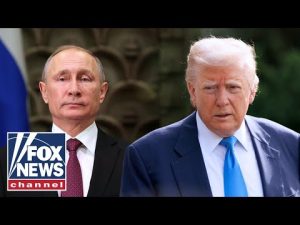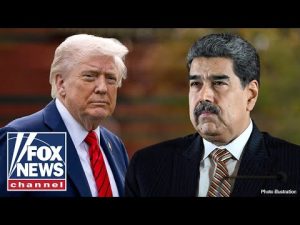In a turn of events that could make a Hollywood scriptwriter envious, the drama between Venezuela’s President Nicolas Maduro and the United States is escalating. It seems our favorite beleaguered, socialist leader is back in the spotlight, calling for “peace” while pointing a finger at the U.S., accusing it of concocting war against his country. Of course, when your idea of peace involves being at the helm of a major drug cartel, it’s hard to tell if you’re auditioning for a community theater’s comedy night or actually trying to run a country.
The U.S. isn’t taking these allegations lightly, deploying a carrier group to the Atlantic following strikes on what are alleged to be drug smuggling boats. Not just any boats, mind you, but vessels that seem to be on a one-way trip to fulfilling Hollywood’s wildest drug lord fantasies. And Maduro’s cozy relationship with crime doesn’t end there. The opposition leader, freshly minted with a Nobel Peace Prize, claims his highness presides over the largest cartel network, impacting nations from the U.S. to Chile. Calling it a reason for concern would be the understatement of the century.
To dive deeper, the conversation with a fellow from the Manhattan Institute shed a light on Maduro’s so-called peaceful demeanor. The fellow, with firsthand experience fleeing Maduro’s version of a socialist paradise, paints a different picture. One where nine million Venezuelans have joined him on an exodus, escaping a country mismanaged into steel bars in the form of a nationwide refugee crisis—another notch on socialism’s disastrous belt. Meanwhile, the U.S., led by President Trump, looks poised to tackle these narco-terrorists head-on, in what some see as a righteous act to put a stop to drug trafficking and hopefully restore some semblance of order.
Critics, of course, question whether the U.S.’s targeted operations are hitting the right targets. There’s a narrative challenging blowback as some speculate whether every hit is truly justified or merely a performance piece in the great geopolitical game. Yet, the evidence seems to suggest that these aren’t your average fishing boats—unless “fishing” is Venezuelan slang for smuggling. Regardless, it’s clear that the wheels are in motion for something resembling change, with the good old CIA reportedly playing their part behind the scenes.
While those who back Maduro might be questioning the longevity of their loyalty, U.S. analysts suggest that these military maneuvers serve a dual purpose—hitting Maduro where it hurts while stirring a pot of doubt among his allies. With the metaphorical noose tightening, the goal may not be just reducing illegal trafficking, but sending a message that standing by Maduro might just sink their ship—or in this case, their submarine. Clearly, more overt actions may be needed to make the head honchos of this mess reconsider their standing commitments. Only time will tell if this latest act in the epic drama of international relations will bring about the intended curtain call for one of the world’s most notorious leaders.







